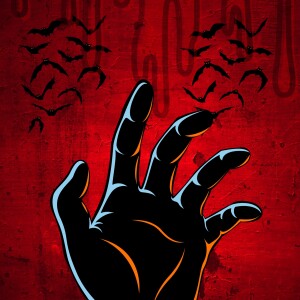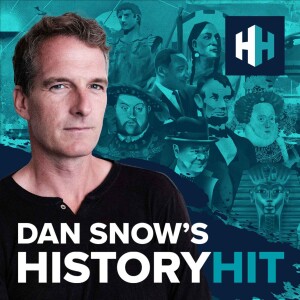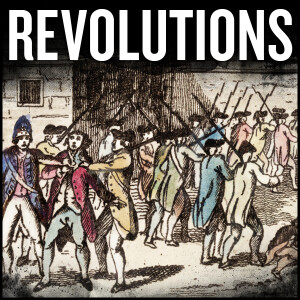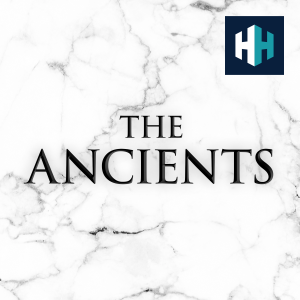

Read Beat (...and repeat)
https://feeds.buzzsprout.com/1950812.rssEpisode List

“Building Bridges” by Douglas Bristol Jr.
World War II is a never-ending source of history. Decades after the conflict’s conclusion, research and examination continue as we seek to understand how we got to where we are today.In Building Bridges, Douglas Bristol examines how the military treated Black Americans before, during, and after the national emergency that WWII represented. Initially, Black Americans weren’t accepted into the service like their white counterparts. When the first peacetime draft was instituted in 1940, many Blacks were passed over by local draft boards, especially in the South. Spurred on by the federal government, more Blacks entered the military, but largely in menial roles rather than serving as combat troops, said Bristol. “Eighty percent of African Americans were used in a service capacity over the course of the war,” he said.But in the spring of 1943, the American military faced manpower shortages that threatened to delay the D-Day invasion, said Bristol. “What followed was a conservative revolution in the Army that changed the way they trained Black GIs,” he said.Since two-thirds of the Black GIs, many coming from a sharecropper background, had only a third-grade education, the Army devised new ways to evaluate recruits, developing non-verbal IQ tests and forming special training units, said Bristol.The training allowed Black GIs who had been sharecroppers before the war to gain skills, allowing them to work in complex organizations, he said.Riley King, later to become known as musician B.B. King, was a tractor driver in the service who was permitted to return to work in the field, said Bristol, pointing it out as an example of how labor needs of Southern planters were taken into account by the military. King was also witness to a scene that exemplified the added burden African American soldiers faced in WWII, said the author. “He was on a bus with other GIs when they passed people on the road. One of the Black GIs innocently called out to some of the women. When the bus came to a lunch stop, an enraged white man got on the bus with a rifle, demanding to know who had the temerity to address a white woman. No one said a word despite being threatened at point-blank range. Eventually, the man left. The incident showed the need for solidarity among Black soldiers when facing hardship,” he said.African American newspapers like the Pittsburgh Courier and Chicago Defender also played a part in helping Black citizens overcome problems in the military. “The constant complaint of African Americans was that the mainstream press said nothing at all about the racial incidents that occurred in camps across the country. The Black press allowed people to read about the problems," said Bristol.As a fellow in the Dale Center for the Study of War and Society at the University of Southern Mississippi, Bristol previously co-edited Integrating the U.S. Military: Race, Gender, and Sexuality Since World War II.

"To Die With Such Men" by Shannon Monaghan
Shannon Monaghan is a military historian whose last book, A Quiet Company of Dangerous Men, offered an account of select British special operations unit members who were so important during World War II.This time around, Monaghan covers a more recent conflict, one that’s still going on: the war between Ukraine and Russia. In To Die With Such Men (Hurst & Co.), the reader is taken behind the lines as Monaghan recreates some of the missions fought in the early stages of a war that started in 2022 when Russia invaded the country. Through extensive interviews with members of Ukraine’s International Legion, the author follows a core group of Western volunteers in Ukraine, fighting together from the early battle for Kyiv through to battles at Severodonetsk and Bakhmut, through May 2023.While not in Ukraine herself, Monaghan recreates battle scenes that portray urban combat in riveting detail. Dialogue from soldiers like Dan, Ginger, and Greg, along with a description of frontline action, complete with a rundown on the weaponry involved, has one ducking for cover.“There’s so much body-cam video and audio of this war that it’s possible to detail battles,” she said. “The war has changed a lot since it started. There was a lot of urban warfare at first that’s evolved into a 21st century version of WWI with drones taking the place of the barbed wire,” said Monaghan.The relentless tension of war is broken by Monaghan’s ability to incorporate the banter of the barracks into the account, where black humor and poignant reflections take hold.While the International Brigade may have contained as many as 20,000 soldiers from Western countries at the start of the war, that number has declined substantially once the realization of what the conflict requires settled in, she said, adding that many of those she interviewed for the book about their service through the summer of 2023 are still there.Ukraine remains steadfast in its opposition to Russian rule, said Monaghan. “The Ukrainian determination to win is there,” she said.The Trump Administration’s efforts to end the fighting in Ukraine may have brought confusion, but “if there’s a silver lining, it’s that the U.S. position has forced European nations to double down on their support for Ukraine,” she said.Among the heroes in this book is Oleksii Chubashev, a TV reporter in Ukraine whose military reality show allowed him to step into the Ukrainian special forces. Having some knowledge of English placed him as an officer in the International Legion. The men who served under Chubashev “genuinely liked working with him: he was smart, charismatic, and a true believer in the cause,” noted Monaghan.Understanding why some people go out of their way to face danger is at the heart of Monaghan’s book. The soldiers she interviewed knew they might be criticized for fighting someone else’s war. But they also knew it was the right thing to do, she said.

"Pacific Atrocities Education" by Jenny Chan
World War II may have ended 80 years ago, but it’s still happening for Jenny Chan, a 2012 University of Illinois graduate.Chan is president and founder of Pacific Atrocities Education, a non-profit based in San Francisco that churns out history regarding World War II’s Pacific front.In addition to publishing 29 books by a wide variety of authors that document human rights abuses, military battles, resistance efforts, and relate other untold efforts from the war, Chan’s group has produced over 500 short historical videos for Pacific Front Untold on YouTube. The group’s website, pacificatrocities.org, has been visited by over half a million visitors in the past 12 months, said Chan, a Chinese-American who first heard horror stories about the war in Asia from her grandmother, who was living in Hong Kong at the time.The stated mission of Pacific Atrocities Education is to increase awareness about atrocities committed in the Asia-Pacific Theater of World War II through public history projects, said Chan who believes that future generations need to understand, and share this history, she said. Chan said that an estimated 25 million to 35 million people died in Asia during WWII.Through publishing books, creating educational resources, and heading archival projects on topics such as Korean comfort women, the Bataan Death March, Unit 731 (a biochemical weapons program), and the Nanjing Massacre, the group seeks to help survivors find closure while increasing the dialogue about complex contemporary issues that surround human rights worldwide, said Chan.While WWII ended in 1945, information related to what happened during the conflict continues to come to light as files are declassified, said Chan, who soon plans another visit to the National Archives in Washington, D.C. to do further research. Chan isn’t the first U of I grad to get involved in the war in Asia. “After graduating 100 years before me, in 1912, Minnie Vautrin became a missionary in China and famously saved the lives of at least 10,000 Chinese refugees during the Japanese army’s 1937 invasion of Nanjing. Sixty years later, University of Illinois Iris Chang (class of 1989) unearthed Vautrin’s diary for her award-winning book, The Rape of Nanking: The Forgotten Holocaust of World War II,” she said.Pacific Atrocities Education plans a Sept. 18 conference in San Francisco, said Chan “to build bridges and advocate for a more peaceful future.”

"Welcome to Florida" by Craig Pittman
Craig Pittman is one writer who doesn’t have to spend a lot of time digging up story ideas. As a 30-year veteran of the Tampa Bay Times and now a reporter for the Florida Phoenix, Pittman gets tips online or by phone as well as having dozens of reliable sources who will alert him to the latest goings-on in his home state of Florida.Florida has been Pittman’s beat for decades. “Nine hundred people move to this state every day. I look at it as my job to tell them what they’re in for. A lot of people think Florida’s history started with Disney World, but there’s a lot more going on,” said Pittman, named a Florida Literary Legend by the Florida Heritage Book Festival in 2020. “That’s a living legend,” said Pittman. “That’s the important part.”Florida has gone through plenty of changes over the years, he said. “In the 1940s, we were the getaway state. In the 1950s, we found that cities like Tampa and others were Mafia-dominated. In the 1960s, you had the Kennedy Space Center. In the 1970s, of course, you had Disney World. By 2000, we became known for the (presidential) election we botched,” said Pittman.His newest book, Welcome to Florida—True Tales from America’s Most Interesting State (University Press of Florida), is a collection of Pittman's recent columns and articles, all about Florida, that most interesting of states. Whether writing about developers and a place once known as Jackass Junction or Jimmy Buffett who founded the Save the Manatee Club in 1981 and supported the effort right up until he died in 2023, Pittman captures your interest with his stories. “To me, the manatee represents what we all like about Florida—kind of cruising in warm, clear water and not bothering anybody,” said Buffett in Pittman’s book.Pittman wrote about manatees just last week in the Florida Phoenix in a story citing the 2,000 manatees that starved to death because the seagrass they depend on for food was wiped out by the consequences of human pollution.“When you only have about 6,000 manatees to start with, that’s a problem,” said Pittman, who acknowledges that Florida faces severe environmental challenges in the era of climate change.“Florida is the flattest state in the union, and we’re surrounded on three sides by water. So that water comes surging in. We’re also the hottest state, with temperatures even rising at night. They call it the Sunshine State but most of Florida’s cities get more rain than Seattle. That leads to more mosquitoes and mosquito-related disease,” he said.More intense hurricanes are doing more damage than ever, but the mantra remains “we will rebuild” instead of “retreat from the beach,” said Pittman. While the governor and a developer-friendly legislature don’t offer much in the way of leadership on climate-change issues, Pittman sees another group weighing in. “The property insurance companies see the pace of disaster,” he said, noting that higher rates or an exodus of insurance firms from the state will likely set the agenda for action.While he never tires of writing about his home state (Welcome to Florida is his seventh book), Pittman said he may try his hand at fiction next. “I wrote about Tim Dorsey (the Florida novelist who died in 2023) in the book. Usually, Tim would slip in some scenes that directly reference real ‘Florida Man’ headlines. There was the one about the guy who tossed an alligator through a Wendy’s drive-through window. Maybe there’s room for another wacky Florida crime novel. We’ll see,” he said.

"Southern News, Southern Politics" by Rob Christensen
Rob Christensen’s new book, Southern News, Southern Politics (University of North Carolina Press), is more than the history of the newspaper, the News & Observer in Raleigh, N.C., described at one point by a politician as “pretty damn fearless.” It’s a profile of the Daniels family, starting with Josephus Daniels in 1895, whose family’s ownership of the paper spanned most of the 20th century.The book chronicles the involvement of members of the Daniels family with U.S. presidents Woodrow Wilson, Franklin Delano Roosevelt, and Harry Truman, all of whom found support from the paper and its owners.Josephus Daniels was a white supremacist who used the paper in its early days to spread hate. “Blacks were routinely portrayed as sexual predators, feeding white paranoia,” noted Christensen. “Even in situations where a white woman was merely in the presence of a black man, the News & Observer found cause for alarm,” wrote journalist David Zucchino. But Daniels found other subjects to write about. He also went after the almighty railroads and opposed the American Tobacco Co’s cornering the market on cigarette production.All the while, Daniels became increasingly involved in Democratic Party politics—not just in Raleigh but across the state and around the country. His first political hero was William Jennings Bryan. Daniels was at Bryan’s side during three presidential elections (all of which Bryan lost).While Josephus Daniels never changed his mind on matters of race, the ardent segregationist was a progressive and a liberal on a broad range of issues from education to women’s rights, said Christensen. “In his time, he fought against the Klu Klux Klan and McCarthyism,” the author said.Daniels helped Woodrow Wilson’s organize a national presidential campaign in 1912. As a result Daniels, 51, was named Secretary of the Navy during the Wilson Administration, where his chief deputy was FDR, then 31. They made the proverbial odd couple, noted Christensen. “The handsome, aristocratic FDR frequented the exclusive clubs clad in English-tailored suits…(while) Daniels, short, dumpy, and allergic to exercise—called the pre-polio FDR, who was six feet two, athletic, and well spoken, “as handsome a figure of an attractive young man as I have ever seen,” wrote Christensen, adding that Daniels probably saved Roosevelt’s political career by covering up an affair he had while serving in the office of the Navy.When Daniels was named ambassador to Mexico after FDR was elected president in 1932, Jonathan Daniels, his son, took over as the paper’s editor. “He had different ideas on race than his father did,” said Christensen. “(Jonathan) gave more voice for racial issues at a time when Blacks had little voice,” he said.Jonathan Daniels also played a role in Harry Truman’s surprising 1948 presidential election. Considered the underdog as Truman was getting his from both the left (Henry Wallace) and the right (Strom Thurmond) in his own party and up against a polished GOP candidate, Thomas Dewey, Truman pulled off the upset. Jonathan Daniels was one of his speechwriters. The News & Observer, meanwhile, continued to develop as a watchdog publication—not just in Raleigh but across North Carolina. During the 1990s, the paper hired its first Black executives and invited the first African American to join its board of directors. Christensen also documents the decline of the newspaper industry, something he bore witness to as a longtime News & Observer staffer who retired in 2018.As the paper’s former book editor J. Peder Zane noted about Southern News, Southern Politics: ”Ambition and politics, family dynamics, and the grand sweep of history collide and align in Rob Christensen’s epic tale of the North Carolina Newspaper dynasty.”
Create Your Podcast In Minutes
- Full-featured podcast site
- Unlimited storage and bandwidth
- Comprehensive podcast stats
- Distribute to Apple Podcasts, Spotify, and more
- Make money with your podcast












